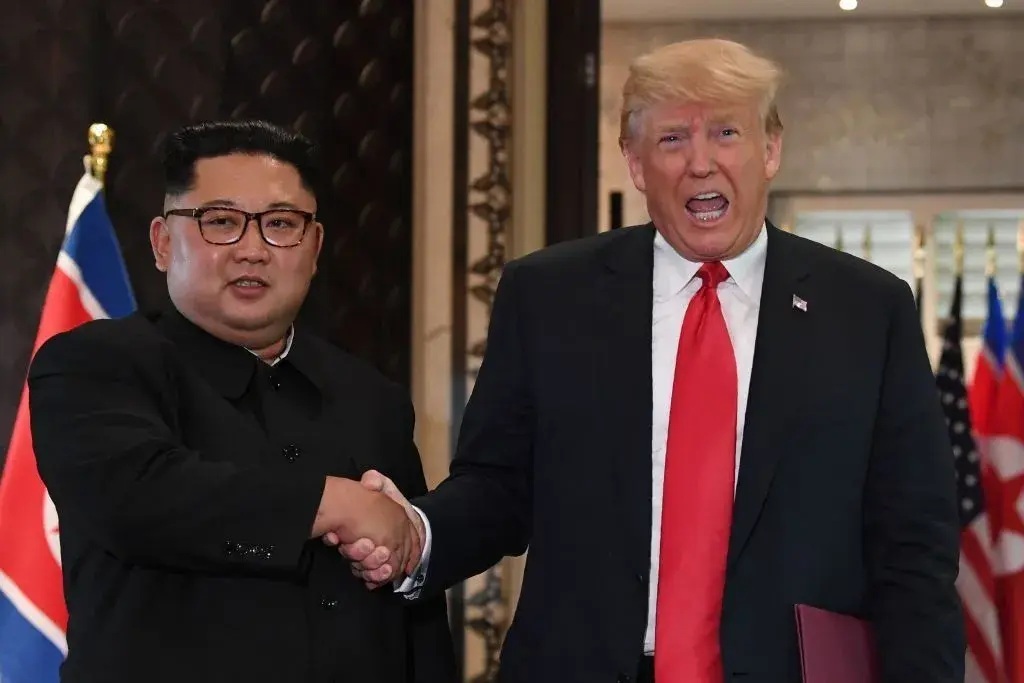Seoul's Bold Proposal and New Signals from Pyongyang
TEHRAN (Defapress) - In the Korean Peninsula, where political tensions have cast a shadow over everything, a fresh breeze of diplomacy is blowing. Recent remarks by North Korean leader Kim Jong Un, expressing readiness for dialogue with the United States, coupled with the bold proposal by new South Korean President Lee Jae-myung to accept an agreement halting North Korea's nuclear activities while allowing Pyongyang to keep its current nuclear arsenal, have opened a window of hope for comprehensive peace in the region. These developments, against a backdrop of past failed negotiations and intensified sanctions, herald a new chapter in these challenging relations.

In his speech on Sunday, Kim Jong Un, referencing fond memories of his three meetings with former US President Donald Trump during Trump's first term, sent positive signals about resuming talks.
According to a report by the North's official Korean Central News Agency (KCNA), he emphasized: "There is no reason not to sit at the negotiation table with the United States; however, this readiness is conditional on several key demands: Washington must abandon its irrational insistence with our denuclearization and, while accepting the existing reality, seek genuine peaceful coexistence."
These remarks indicate a potential shift in Pyongyang's approach, which had strengthened diplomatic and military ties with Russia and China following the failure of the high-level trilogy of talks (Singapore, 2018; Hanoi-Vietnam, 2019; DMZ, 2019). Kim Jong Un described the nuclear program as a "matter of survival" and warned, "The world knows well what the US does to a country after it disarms; we will never give up our nuclear weapons." This stance is rooted in perceived threats from the US and South Korea and emphasizes that maintaining nuclear weapons is vital for North Korea.
On the other side, South Korea's liberal President Lee Jae-myung, who came to power last June following the impeachment and removal of Yoon Suk-yeol, has proposed a more pragmatic approach. In an interview with the BBC, he stated that a halt to North Korea's production of nuclear weapons as a "temporary emergency measure" is a "more practical and realistic option" compared to "complete denuclearization."
He pointed out that Pyongyang produces 15 to 20 new nuclear weapons annually and stressed: "We must move away from insisting on the long-term goal of denuclearization to benefit from the clear advantages of halting North Korea's nuclear and missile development." In another interview with Reuters, Lee acknowledged the failure of UN sanctions, saying, "The previous approach of sanctions and pressure not only failed to solve the problem but made it worse."
This view, contrasting with Yoon Suk-yeol's hardline policy, focuses on resuming inter-Korean dialogue and a step-by-step approach to disarmament. He raised a crucial question: "Should we continue futile efforts to achieve the ultimate goal, or should we set more realistic goals and achieve some of them?" These developments occur against a backdrop of rising tensions; previous talks between Trump and Kim, while creating historic moments, failed to halt North Korea's nuclear activities and ultimately led to a collapse in dialogue.
In recent years, Pyongyang has also expanded its nuclear arsenal and strengthened ties with Eastern powers. Conversely, under Yoon's leadership, South Korea brought inter-Korean relations to their lowest point. However, Lee Jae-myung, focusing on tension reduction, is striving to reopen the path of diplomacy. Therefore, accepting a halt to nuclear weapons production could serve as a bridge to confidence-building, but challenges such as Kim's unwillingness for complete denuclearization and US pressure for disarmament remain serious obstacles.
